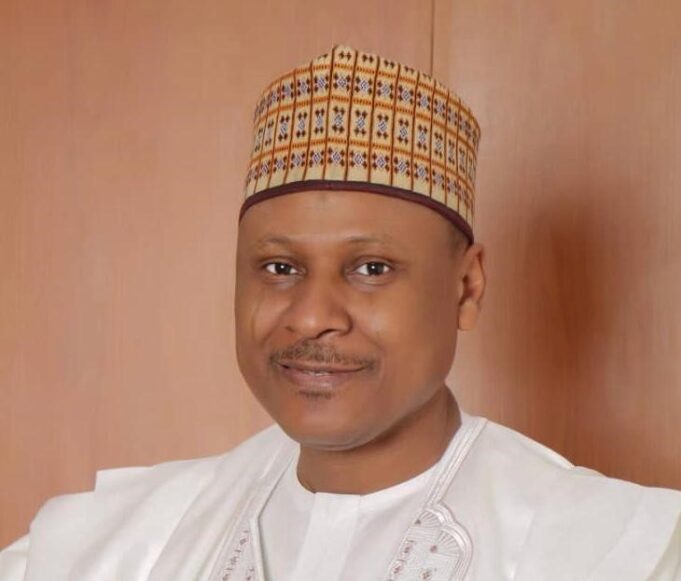By IBRAHEEM MUSA
Cool, calm and collected, Alhaji Mohammed Idris Malagi’s delivery and demeanour approximate President Barrack Obama’s at the ongoing ministerial screening. Indeed, President Bola Ahmed Tinubu, on the 28th of July, unveiled his first batch of ministerial nominees and Malagi made the list of 28. Last Wednesday, he was at the red chambers of the National Assembly, where he fielded questions from senators. Malagi, in that screening, displayed dexterity as to how a potential national security threat, of which fake news has become, can be addressed squarely. In fact, his familiarity with the subject and how to tackle it, are rooted in his composite experience as a Public Relations magnate, newspaper publisher and proprietor of a broadcast station.
Specifically, peddlers of fake news and bloggers, a dubious tag team, have instigated several crises, escalated many conflicts and are regularly defaming people with reckless abandon. This impunity, under the guise of freedom of expression, is tugging at our national unity, threatening our peaceful coexistence and progress. Malagi, as Blueprint Newspaper’s publisher, the General Secretary of Newspapers Proprietors’ of Nigeria and staunch member of International Press Institute, encounters fake news on a routine basis, as do most Nigerians.
However, the government and professional bodies, in spite of their antics, are somewhat hamstrung to deal with the menace. Indeed, they can neither rein them in, nor apply sanctions on peddlers of fake news. More so, some lawyers, communication scholars and activists are always up in arms against social media regulation. The maligned, according to them, should approach the courts for possible redress but in Nigeria, the wheel of justice is so slow that the injured prefers to grieve privately. Last Wednesday, the ministerial nominee from Niger state, in lucid terms, showed the way out and the senators were all ears.
Prompt, credible and uninterrupted news flow from government, according to him, will asphyxiate fake news. Mainly, rumour and fake news get oxygen from information black out, a vacuum that not only gives them life but the wings to travel far and wide. Indeed, Malagi’s homily is a wake up call to spokesmen and government news outlets, to desist from hoarding information. “Unless credible information is put out there,” Malagi has counselled, ‘’there will be room for rumours, misinformation, fake news and all kinds of things.’’ Besides, information is key to transparency, accountability and moulding perception, he added.
Varsity withholds officials’ salaries for delaying students’ results
In addition, the minister-designate addressed unemployment, another clear and present danger, in his senate screening. Last April, Klynveld Peat Marwick Goerdeler (KPMG), a multinational consulting firm, painted a gloomy picture of Nigeria’s unemployment rate. In 2022, unemployment rate stood at 37.7% but right now, it is at 40.6% and the reason is not far-fetched. Categorically, the report blamed continuing inflow of job seekers, about 4-5 million new entrants, into the job market every year. Indeed, limited private sector investment, low industrialisation and slow economic growth, according to KPMG, are responsible for the unemployment spike. Besides, the firm predicated a steady percentage increase except these enablers are addressed. Malagi, on this note, advised that creating jobs is a shared responsibility between the private sector and government but added a caveat. Government, according to him, should create the enabling environment for businesses to thrive and the private sector will provide jobs to eligible applicants.
Significantly, Nigeria is ranked 131 among 190 economies in the Ease of Doing Business, according to the latest World Bank annual ratings. In fact, ten indices determine the global ranking and they include the time, procedure, cost and minimum capital to open a new business. Similarly, the process of obtaining construction permits, time and cost of building a warehouse are also factored, so is the ease of getting electricity and its steady supply. In addition, the bureaucracy of registering property, including time and cost, is a determining factor. Likewise, access to credit facilities, protection of investors, especially the extent of exposure, director’s liability and ease of shareholder suits, are given consideration. Besides, the number of taxes paid, cost and time to import and export, as well as ease of enforcing contracts and resolving insolvency under bankruptcy proceedings, constitute the ranking parameters. Sadly, Nigeria performs poorly in all these indices.
However, President Tinubu has turned a new page as last month, he signed four Executive Orders aimed at curbing multiple taxation. The five per cent Excise Tax on telecommunication services and the Excise Duties escalation on locally manufactured products, have been suspended. Similarly, the President also signed the Finance Act (Effective Date Variation) Order, 2023, which now defers the commencement date of the changes contained in the Act from May 23, 2023 to September 1, 2023. Likewise, he signed the Customs, Excise Tariff (Variation) Amendment Order, 2023, shifting the commencement date of the tax changes from March 27, 2023 to August 1, 2023 and also in line with the National Tax Policy. In addition, the President ordered the suspension of the newly introduced Green Tax on Single Use Plastics (SUPs), including plastic containers and bottles. Also, Tinubu ordered the suspension of Import Tax Adjustment levy on certain vehicles.
All things being equal, the president means business, from his pronouncements, on providing an enabling business environment. Malagi, with about 30 years in private business, will be a suitable driver of this reform if confirmed Minister.
*Musa was Editor of Blueprint Weekend
- Tinubu appoints Jim Ovia as Education Loan Fund chairman - April 26, 2024
- Ondo 2024: Akeredolu’s ex-deputy emerges PDP guber candidate - April 26, 2024
- Again, JAMB extends 2024 Direct Entry registration - April 26, 2024










